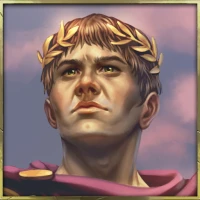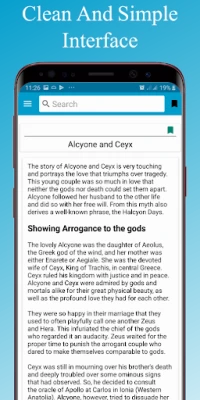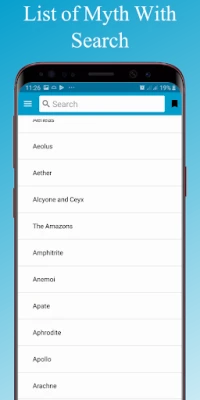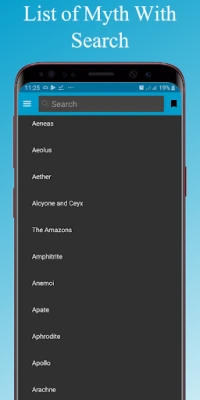
Latest Version
2.4.7
February 26, 2025
Ant Bee Dev
Entertainment
Android
0
Free
id.antbeedev.Greek.Mythology.Offline
Report a Problem
More About Greek Mythology
Unveiling the Rich Tapestry of Greek Legends and Myths
Greek legends form a captivating tapestry of stories and teachings that have shaped the cultural and religious landscape of ancient Greece. These narratives encompass the lives of gods, goddesses, heroes, and mythical creatures, providing insights into the origins of the world and the significance of worship practices. Scholars and enthusiasts alike delve into these myths to explore the religious and political institutions of ancient Greece, as well as to understand the broader implications of myth-making in society.
The Essence of Greek Mythology
Greek mythology is not merely a collection of tales; it is a profound reflection of the ancient Greeks' understanding of their world. These myths serve to explain natural phenomena, human experiences, and the complexities of life. From the creation of the universe to the heroic exploits of figures like Hercules and Odysseus, Greek legends offer a rich narrative that intertwines the divine with the mortal.
Gods and Goddesses: The Divine Pantheon
The Greek pantheon is populated by a multitude of gods and goddesses, each embodying different aspects of life and nature. Zeus, the king of the gods, represents authority and justice, while Hera, his wife, symbolizes marriage and family. Other notable deities include Poseidon, the god of the sea, and Athena, the goddess of wisdom and warfare. These divine figures not only influenced the lives of mortals but also served as archetypes for human behavior and societal values.
Heroes and Their Epic Journeys
In addition to the gods, Greek mythology is rich with tales of heroes who embark on epic quests. These heroes, such as Achilles, Perseus, and Theseus, often face insurmountable challenges and engage in battles against formidable foes. Their journeys are not just physical; they also represent the struggle for identity, honor, and redemption. Through their adventures, these characters exemplify the virtues and flaws of humanity, making their stories timeless and relatable.
Mythical Creatures: The Beasts of Legend
Greek legends are also populated by a variety of mythical creatures that add depth and intrigue to the narratives. From the fearsome Minotaur, who dwelled in the labyrinth, to the enchanting Sirens, whose songs lured sailors to their doom, these beings serve as symbols of the unknown and the dangers that lie beyond the familiar. They challenge heroes and test their resolve, often leading to profound lessons about courage and wisdom.
The Role of Myths in Ancient Greek Society
Myths played a crucial role in the religious and cultural practices of ancient Greece. They were not just stories for entertainment; they were integral to the worship of the gods and the understanding of the world. Rituals and ceremonies often drew upon these legends, reinforcing the connection between the divine and the mortal. Temples, festivals, and artistic representations, such as vases and sculptures, served to commemorate these myths and keep their teachings alive.
Exploring Greek Myths Through Art
The influence of Greek mythology extends beyond literature into the realm of art. Ancient Greek artists captured the essence of these legends through various mediums, including pottery, sculpture, and painting. Vases adorned with scenes from mythological tales not only served practical purposes but also acted as a canvas for storytelling. These artistic representations provide valuable insights into the values, beliefs, and aesthetics of ancient Greek society.
Modern Interpretations and Legacy
Today, Greek mythology continues to inspire literature, film, and art across the globe. Modern interpretations often reimagine these ancient tales, exploring themes of heroism, morality, and the human condition. The enduring legacy of Greek legends lies in their ability to resonate with contemporary audiences, reminding us of the timeless nature of these stories and their relevance in our lives.
Conclusion: The Timeless Allure of Greek Legends
Greek legends and myths offer a profound glimpse into the ancient world, revealing the beliefs, values, and aspirations of a civilization that has left an indelible mark on history. Through the exploration of gods, heroes, and mythical creatures, we gain a deeper understanding of the human experience and the complexities of existence. As we continue to engage with these narratives, we honor the rich cultural heritage of ancient Greece and its enduring influence on our modern world.
Rate the App
User Reviews
Popular Apps










Editor's Choice































